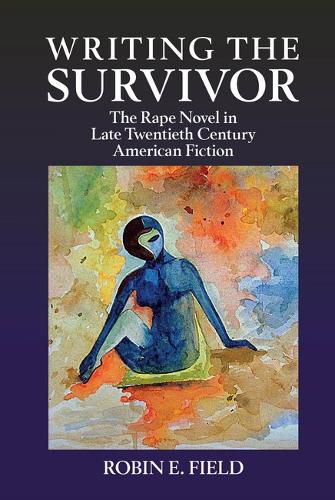Readings Newsletter
Become a Readings Member to make your shopping experience even easier.
Sign in or sign up for free!
You’re not far away from qualifying for FREE standard shipping within Australia
You’ve qualified for FREE standard shipping within Australia
The cart is loading…






Writing the Survivor: The Rape Novel in Late Twentieth-Century American Fiction identifies a new genre of American fiction, the rape novel, that recenters narratives of sexual violence on the survivors of violence and abuse, rather than the perpetrators. The rape novel arose during the women's liberation movement as women writers collectively challenged the traditional erasure of female subjectivity and agency found in earlier representations of sexual violence in American fiction. The rape novel not only foregrounds survivors and their stories in a textual centering that affirms their dignity and self-worth, but also develops new narratological strategies for portraying violent, disturbing subject matter. In bringing together many key women's texts of the last decades of the 20th century, the rape novel demonstrates the centrality of sexual assault to women's fiction of this era. The rape novels of the 21st century continue the political activism inherent in the genre-educating readers, offering community to survivors, and encouraging social activism-as the stories of male survivors are increasingly told. A radical reconsideration of late twentieth-century American novels, Writing the Survivor underscores the importance of women's activism upon the novel's form and content and reveals the portrayal of rape as rape to be an interethnic imperative.
$9.00 standard shipping within Australia
FREE standard shipping within Australia for orders over $100.00
Express & International shipping calculated at checkout
Writing the Survivor: The Rape Novel in Late Twentieth-Century American Fiction identifies a new genre of American fiction, the rape novel, that recenters narratives of sexual violence on the survivors of violence and abuse, rather than the perpetrators. The rape novel arose during the women's liberation movement as women writers collectively challenged the traditional erasure of female subjectivity and agency found in earlier representations of sexual violence in American fiction. The rape novel not only foregrounds survivors and their stories in a textual centering that affirms their dignity and self-worth, but also develops new narratological strategies for portraying violent, disturbing subject matter. In bringing together many key women's texts of the last decades of the 20th century, the rape novel demonstrates the centrality of sexual assault to women's fiction of this era. The rape novels of the 21st century continue the political activism inherent in the genre-educating readers, offering community to survivors, and encouraging social activism-as the stories of male survivors are increasingly told. A radical reconsideration of late twentieth-century American novels, Writing the Survivor underscores the importance of women's activism upon the novel's form and content and reveals the portrayal of rape as rape to be an interethnic imperative.